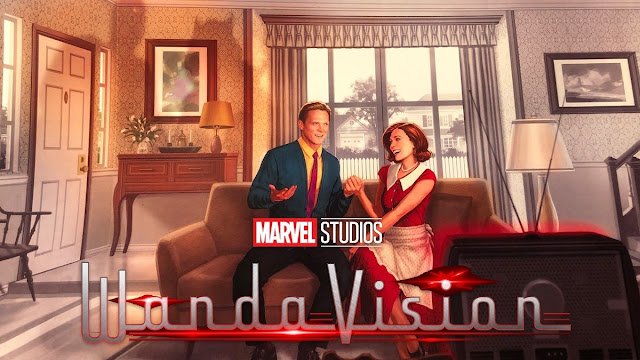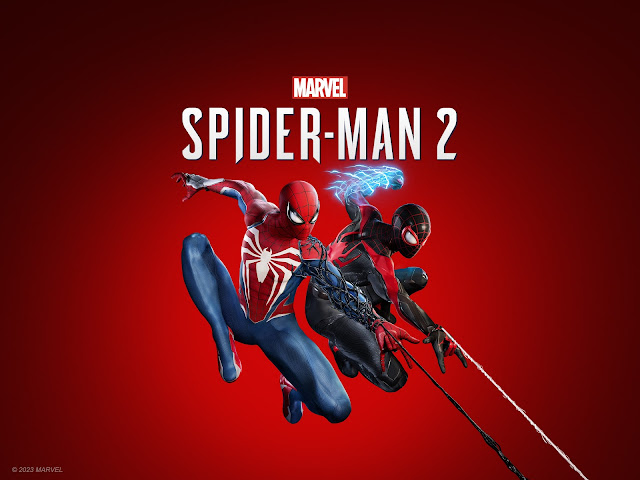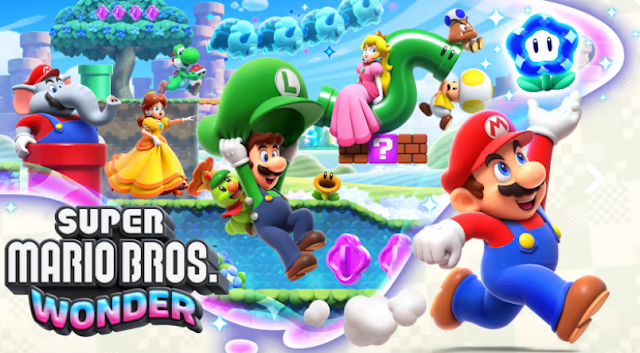"WandaVision" Review
It's crazy to think 2020 was the first full year where the Marvel Cinematic Universe didn't release a single piece of content since 2009. With the COVID-19 pandemic closing down theatre chains across the globe, and Marvel's production pipelines being halted mid production, the start of the MCU's Phase 4 didn't go according to the original plan. If things had gone differently, by now we would have already seen movies like "Black Widow" and "The Eternals", and we would have gotten the MCU's first TV show under the Marvel Studios umbrella, "Falcon and the Winter Soldier" with the fourth show in the schedule, "WandaVision" next in the pipeline. As we all know, the order of things ended up being way different. And to Marvel's credit, "WandaVision" works surprisingly well as the opening salvo for their new phase of content.
If there is anything you can takeaway immediately from "WandaVision", is that this is the wildest swing the MCU has taken so far with any of their properties. If there is one common criticism you can level at the mostly successful cinematic universe they have created, is that with just a few exceptions, most of the 23 (!) movies they have produced since they kicked things off with "Iron Man" back in 2008 have a certain homogeneity to them that tends to make things feel a little samey and formulaic. Their formula at a base level has worked, mind you, but after almost 13 years things need to freshen up a little. With just a couple exceptions along the way, you can't quite level that complaint towards "WandaVision".
At the same time, the wild swing they've taken with "WandaVision" also means that appreciating what Marvel has done with it depends a lot early on about how much someone knows of (or even appreciates) the fact this show makes homages to the sitcoms of yesteryear. Old sitcoms like "The Dyk Van Dyke Show", "Bewitched", "Full House", "Growing Pains", "Malcolm in the Middle" and even "Modern Family" inform a lot of the style of some of the individual episodes, with "WandaVision" closely replicating them surprisingly well while still making this show its own thing. But deep within the framework of the sitcom homages, lies something deeper and more impactful once the show starts playing its hand.
With only nine episodes at play, if someone feels like they are not feeling or vibing with the early episodes, I would say things start clicking into place with the fourth episode. The first two episodes, "Filmed Before A Live Studio Audience" and "Don't Touch That Dial", are the most overtly sitcom episodes of the entire run, and like mentioned before, enjoyment towards them depends mostly on how onboard people are towards a modern show openly paying homage to very old "black and white" sitcoms with very little in the way of an "overarching story" outside some tiny easter eggs and teases. The third episode, "Now in Color", as the title suggests it, continues the sitcom pastiche but now paying homage to colored sitcoms, and it takes until the very end to start showing its hand and giving an idea of what the show is really about. And then the fourth episode, "We Interrupt This Program", is the one that blows the lid up for the series, and its connection to the wider MCU is finally established (and it was the moment I was fully sold with the series).
"We Interrupt This Program" helps with properly establishing the timeline for when "WandaVision" occurs within the MCU. It starts establishing how the heightened sitcom world both Wanda and Vision inhabit as seen in the early episodes is completely fake, and its the result of something Wanda may have done since we all know way back in 2018's "Avengers: Infinity War" that Vision met his end at the hands of Thanos (something we're reminded of with the incredibly haunting image of Vision with the hole in his forehead), so it couldn't possibly be him. Many players from other MCU films start appearing here, including Darcy from the "Thor" films, Detective Jimmy Woo from "Antman and the Wasp" and a grown up Monica Rambeau from "Captain Marvel". Monica in particular goes through quite a transformation in this series, setting the stage for a particular heroic future in the MCU. For a while, she seemed like she was going to emerge as the true POV character in the series.
With the fourth episode opening the show up considerably, it started to set up a web of intrigue both within the show and outside the show, as theories about how "WandaVision" would connect to the larger MCU would also cross with theories about how this show would bring in certain Marvel characters from certain stories this show took inspiration from in the comics. With "Doctor Strange and the Multiverse of Madness" being publicly the movie said by producer Kevin Feige to follow up this show (not scheduling wise but "plotwise"), theories about how this show would fully establish the MCU's version of the "multiverse" started to heat up. When the fifth episode, "On a Very Special Episode..." ended with the seeming reintroduction of Wanda's brother Pietro Maximoff (who died back in 2015's "Avengers: Age of Ultron" and was now played by Evan Peters who played the character in the X-Men movies by 20th Century Fox), the "multiverse" theory started to seemingly be borne out, to both the show's benefit and its detriment.
When you have a show that starts toying with a mystery box like the episodes following the fourth one were, there is always the danger of expectations not meeting up reality. Evan Peter's Quiksilver appearing gave the impression that the sky was the limit about what could happen with the show. The truth was anything but. All these developments were not designed to ultimately serve the larger MCU, but instead were all colliding to provide full texture and exposure to what ended up being the true core of the show.
After sort of toying with the idea that someone may be behind Wanda's sitcom shenanigans (and kind of sort of seemingly "exonerating" her in the process) on the sixth and seventh episodes "All-New Halloween Spooktacular!" and "Breaking the Fourth Wall", everything finally comes to a head with the eighth episode, "Previously On". While yes, this show ultimately features a villain in the form of Agatha Harkness (with actress Kathryn Hahn hamming it up and delightfully chewing scenery), "Previously On" ends up being probably the most important episode of the entire show, as it finally lays it all bare when it comes to Wanda herself. The episode not only gives us the belated full origin of the character (something we've heard before through snippets of dialogue in previous MCU films) but really puts everything in context with how her life has been an endless parade of tragedy going all the way to her childhood, and it ultimately makes her relationship with Vision resonate in a way the movies never showcased. Ultimately, everything that happened in the show is because of the grief she's carrying after a lifetime full of misery, and puts the "grander than life" nature of the show in a much more human context. The line "What is grief, if not love persevering?" alone is one of the most powerful moments the MCU has ever delivered.
"Previously On" is the episode that underlines the biggest success for "WandaVision": at its core, the show takes two characters that at best were supporting players in big team up movies, and using the extended run time of the TV format, helps flesh them out considerably where a romance that seemed tacky and farfetched in live action now felt real and heartfelt. It underlines how much stronger a tool for storytelling TV can be compared to movies, as you can get more character development here than in a two hour running time on a movie. It's not surprising to see people online think so highly of both Wanda and Vision thanks to what this show has done to flesh them out.
The eighth episode was so important in establishing what was the area the show was at its best, because the finale (funnily titled "The Series Finale") was a relative dud in comparison. While there were some strong moments, including Wanda fully emerging as The Scarlett Witch and a rather tear-jerking final moment between Wanda and Vision, the finale missed the mark when it came to everything that surrounded our main characters. The supplemental characters we get to see throughout the show were severely underserved in the end (Monica Rambeau seemed particularly wasted after her promising debut/development since the fourth episode), the side villain, Director Hayward, was as generic a bad guy as I've ever seen in the MCU, and the handling of Evan Peters Pietro was borderline insulting to anyone excited about the idea of this show properly seeding the multiverse concept into the MCU (making this the second "miss" after the bait and switch with their version of Mysterio with "Spider-Man: Far from Home"). How people react to the way the show sticks the landing depends heavily on how much they are invested in the Wanda and Vision dynamic, because their end to this particular story is emotionally satisfying. To anyone more interested in what the impact of this show is to the larger MCU, other than the brief tantalizing post credit scenes in the finale, prepare to be WILDLY disappointed if you let your theories get out of control. Me, oddly enough, am somewhere in the middle.
In the end, those two extremes make me feel a little divided with how I feel about "WandaVision" as a whole. As a character piece meant to serve two characters that were never the true focus of the movies, the show is a mighty success with the way it has fleshed out Wanda Maximoff as a character and added such a touch of humanity to the Vision character, and actors Elizabeth Olsen and Paul Bettany never stopped giving their all whether it was a sitcom gag or a tear-jerking moment. At the same time, considering how deliberately the show was seeding itself with tiny kernels of what things could happen to the larger MCU (specially knowing its supposed direct connection to the upcoming Doctor Strange film), its hard not to feel like the show did pull some punches at the end. While that last point can be a symptom to the larger problem that is getting lost in theories with these kinds of properties, it doesn't help when something deliberately baits you into thinking about those things and feeling a little jipped at the end of it.
Ultimately, the core that made the show strong was its main characters, and on the strength of that core, I can say "WandaVision" was mostly a successful wild swing for Marvel. As the MCU starts growing older and older, even if things don't always fully work, I rather Marvel continue experimenting with its formula and try even more wild things. They have mostly earned our good will, so this is the time to continue swinging for the fences. And from a base quality, if this is what we can expect from Phase 4 moving forward from both the movies and TV shows, I think they are mostly in good shape.
★★★★
4/5
Great
Written by Alejandro Segovia
TV Scoring rubric:
★ : 1 point ☆ : 0.5 points
★★★★★: Essential. Excellent episodes. Close to flawless. Transcends any minor flaws it may have.
★★★★: Great/Highly recommended. Great episodes. Some flaws worth mentioning, but nothing to worry about.
★★★: Okay/Recommended. Good episodes. Contains things worth watching & experiencing, but flaws can hinder the experience.
★★: Caution/Questionable. Mediocre episodes. The flaws start to significantly hinder anything good the episode has.
★: Avoid. Bad episodes with nothing redeemable about them (some enjoyment as "so bad its good). Preferably don't waste your time.










Comments
Post a Comment